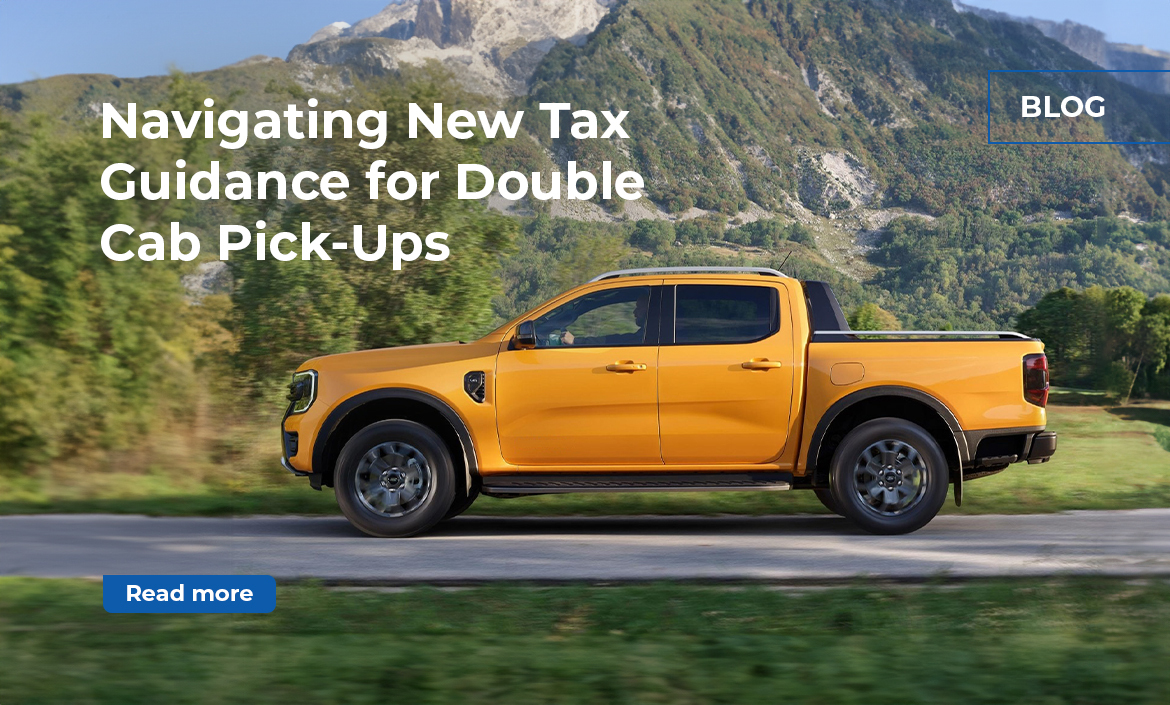HMRC has updated its guidance on the tax treatment of Double Cab Pick Ups.
On February 12th, 2024, HMRC, the UK tax authority, revised its rules on Double Cab Pick Up (DCPU) taxation, based on a 2020 court decision. This change meant treating DCPUs with one-tonne payloads as cars from July 1st, 2024, impacting tax benefits.
However, after listening to farmers and the automotive industry about the potential consequences, the government reversed course. Recognizing the potential negative impact on key sectors like farming and the wider economy, they announced:
- DCPUs remain classified as goods vehicles for tax purposes. Businesses and individuals keep their current tax advantages.
- New legislation will solidify this classification. The government will consult on draft legislation before adding it to the next Finance Bill, ensuring its effectiveness.
This reversal shows the government’s commitment to supporting important industries and adapting policies based on feedback.
Understanding the reason for change
The crux of the matter lies in the fact that double cab pick-ups was going to be classified as company cars by default. This shift would have carried significant implications, particularly for fleets, as it translates to increased costs in terms of Income Tax and National Insurance Contributions (NIC). Additionally, any associated fuel benefits provided will also incur higher taxation.
This alteration in tax treatment may have posed challenges for businesses and sole operators across various sectors, including construction and rural industries, where double cab pick-ups are essential tools.
HMRC's Reasoning for Change
Prior to the change, the distinction between a van and a car for tax purposes was aligned with VAT definitions. Double cab pick-ups with a payload of under one tonne were considered cars, while those with a payload of one tonne or more were classified as vans.
However, HMRC’s stance implied a change from this approach, opting for a separate interpretation for tax purposes. By outlining double cab pick-ups as company cars, HMRC did aim to streamline the taxation process and mitigate ongoing disputes surrounding their classification.
However, HMRC have made a U-Turn after listening to the farmers and automotive industry and these changes will no longer be going ahead.
Implications for Businesses and Operators
While this clarification may alleviate some confusion, it is essential for businesses and individuals to understand the implications of these changes.
The reclassification of double cab pick-ups as company cars will inevitably lead to higher tax liabilities, potentially rendering them a less attractive option for fleet managers and operators.
As we approach the implementation date of 1st July, it is imperative for everyone to assess the impact of these changes on their operations. This may involve reviewing existing vehicle fleets, considering alternative transportation options, or exploring potential mitigating strategies to minimise tax liabilities.
Navigating the Changes
Despite the challenges posed by HMRC’s revised tax guidance, there may still be avenues for optimisation and cost management.
Engaging with tax advisors or consulting with industry experts can provide valuable insights and assistance in navigating the complexities of the new regulations.
HMRC’s decision to classify double cab pick-ups as company cars and not commercial vehicles signifies a significant change in taxation policy.
While this shift may present challenges for businesses and operators, it also offers an opportunity to reassess and optimise vehicle fleet management strategies.
Get in touch for any of your fleet queries:
If your business needs any assistance, with setting fleet budgets, or would like to understand more about what vehicles fit into your fleet budget, get in touch today. Our experts can offer guidance regarding alternative fuel types and whole-life cost analysis.


